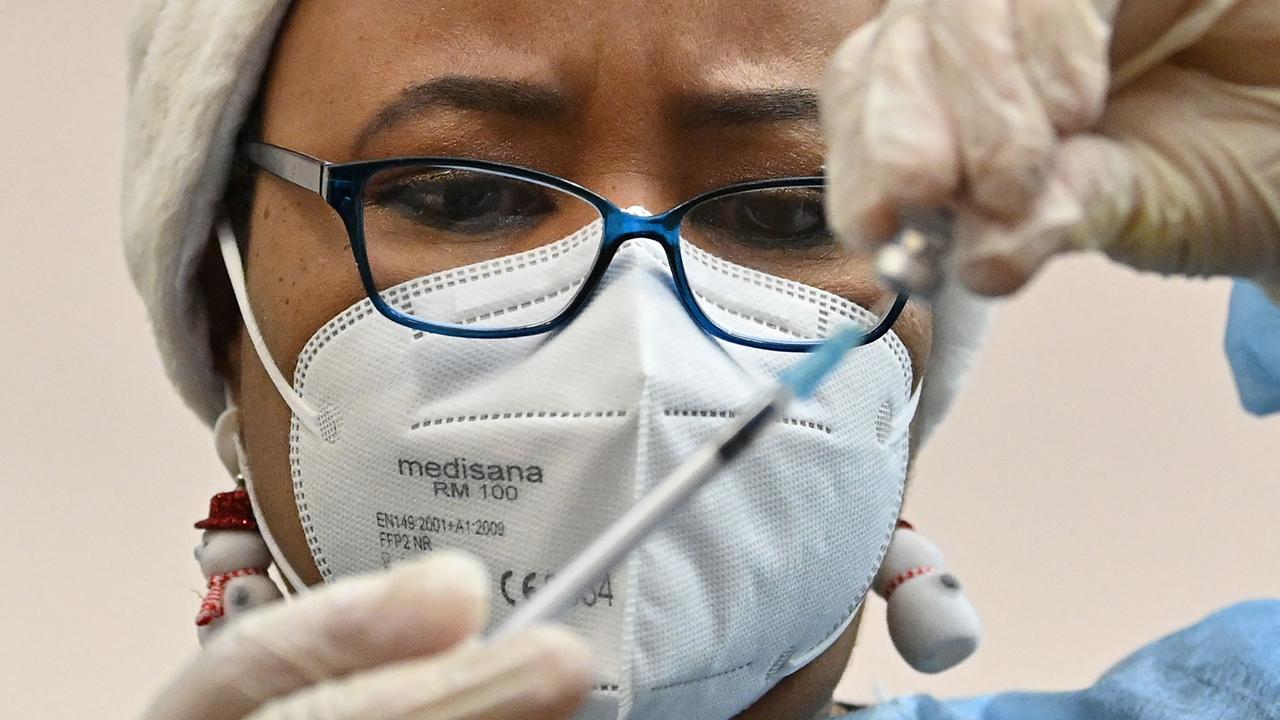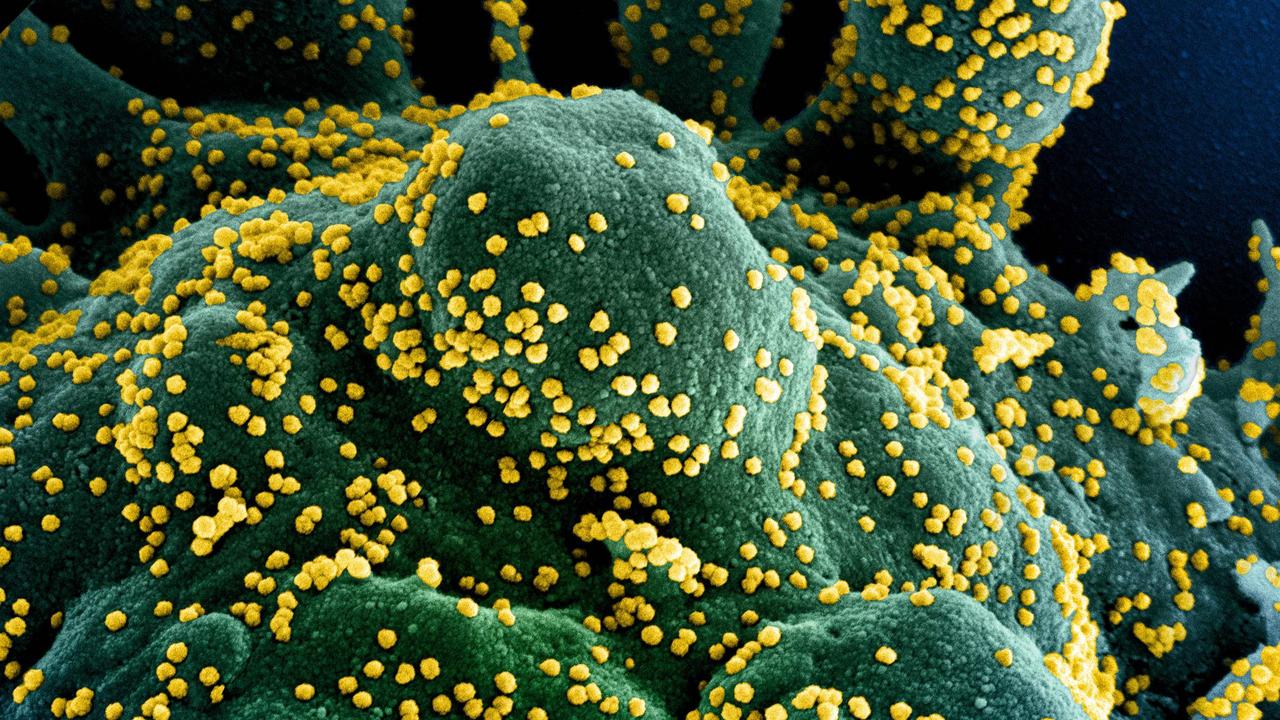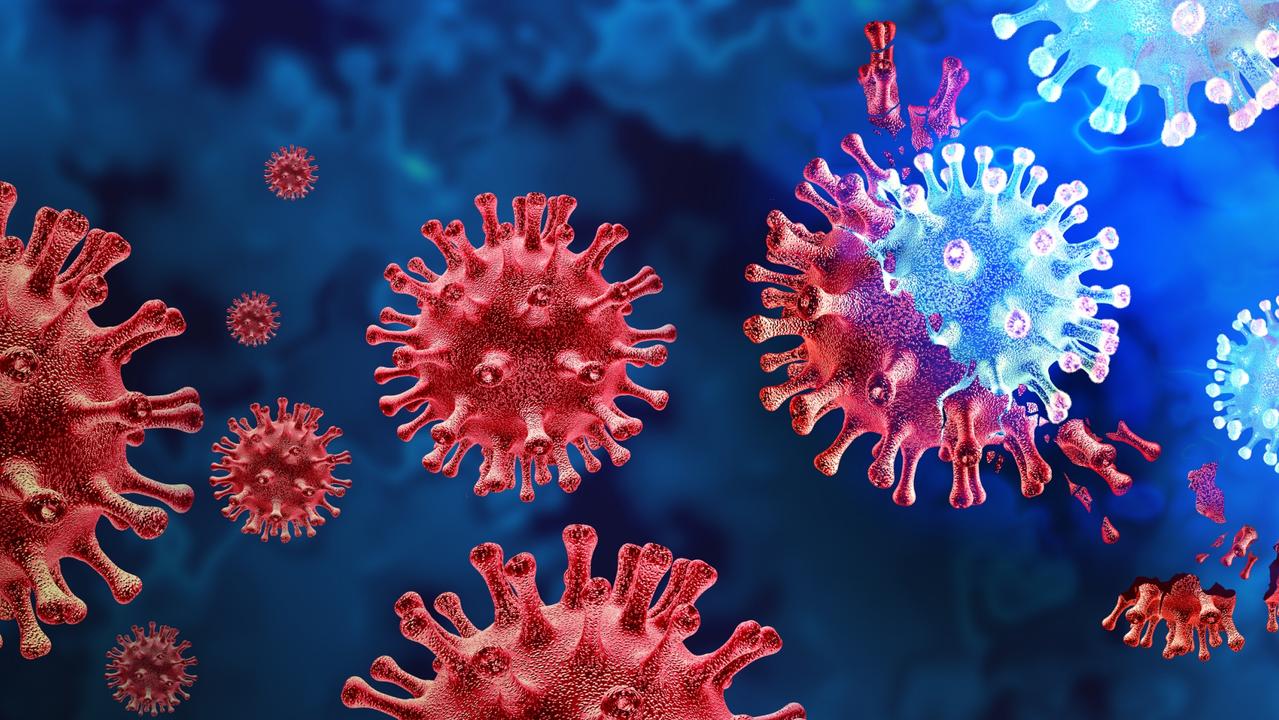Singapore confirms highest single day virus death toll after abandoning Covid-zero
It is one of the most vaccinated countries on the planet – but after abandoning a Covid-zero approach, case numbers and deaths are now skyrocketing.
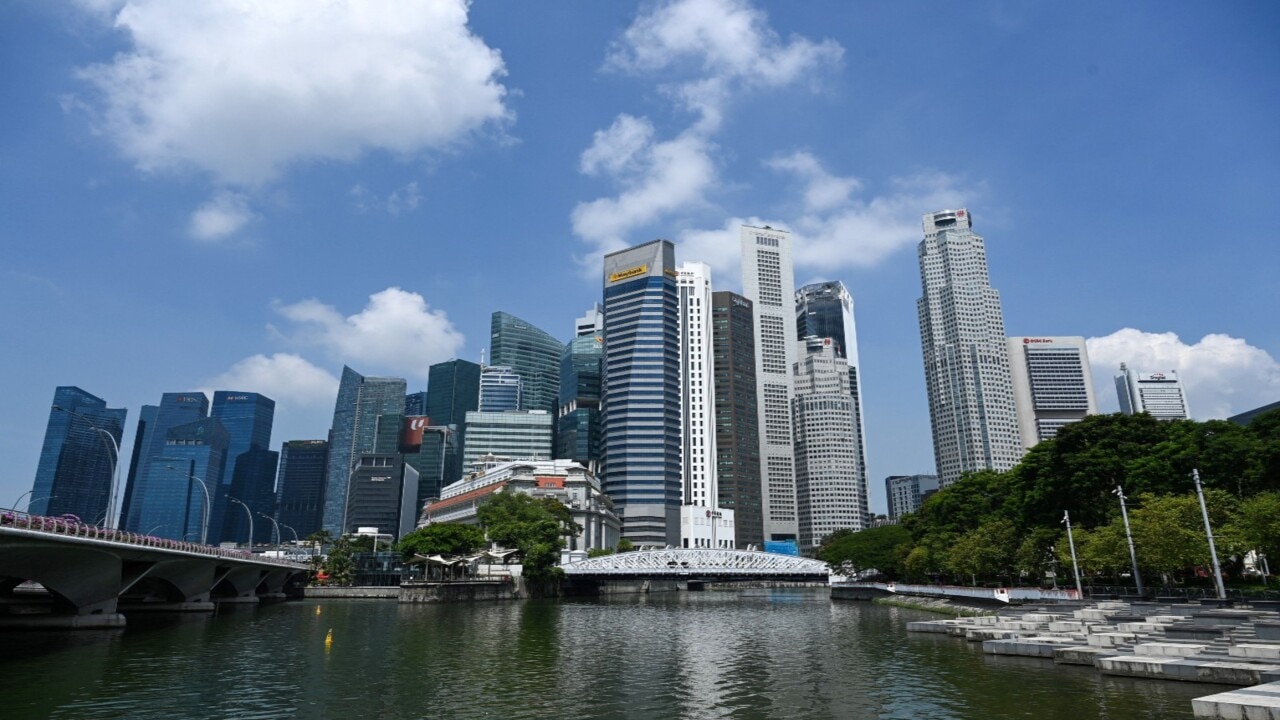
For months, Singapore has been held up as one of the world’s true Covid success stories.
After pursuing a Covid-zero strategy, the virus was virtually eliminated and the nation emerged from lockdown with an incredibly low death toll.
It is also one of the most vaccinated countries on Earth, with the Ministry of Health confirming 84 per cent of the population was fully vaccinated this week.
For most of the pandemic, Singapore, like Australia, was committed to a zero transmission model – but in June this year, that all changed, when the government announced a drastic pivot to instead “live with Covid”.
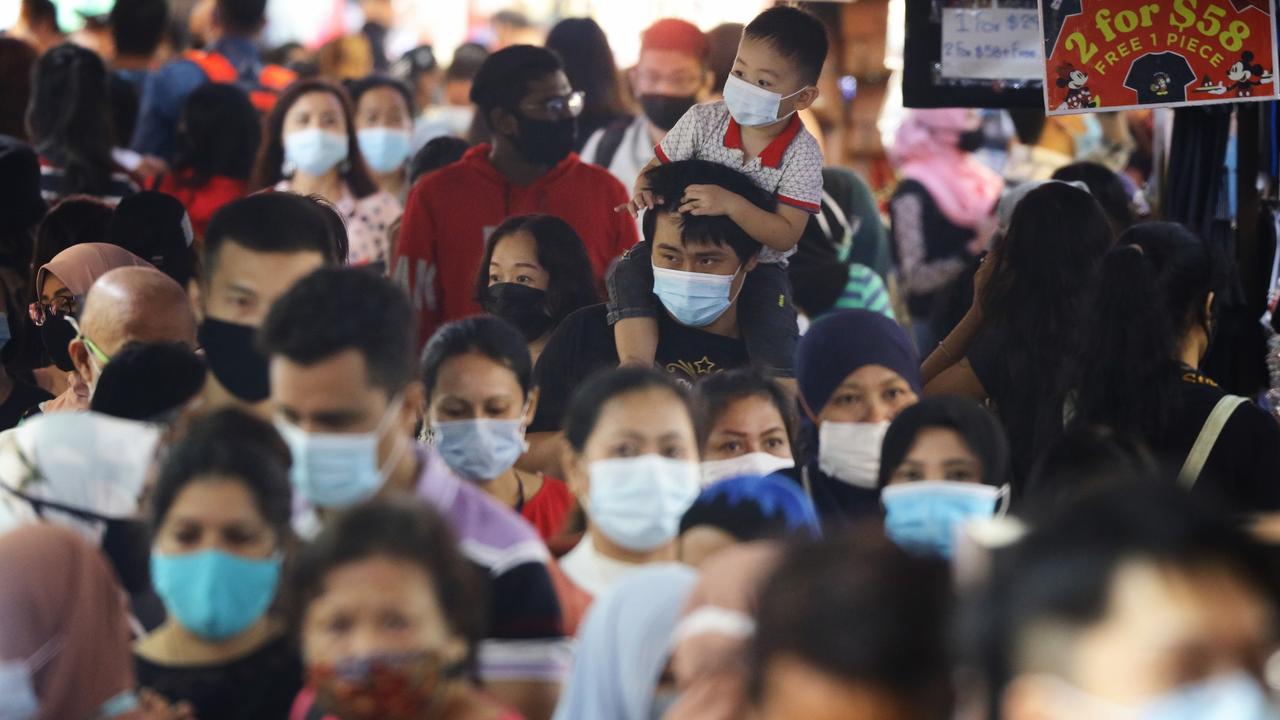
“The bad news is that Covid-19 may never go away. The good news is that it is possible to live normally with it in our midst,” wrote Finance Minister Lawrence Wong, Trade and Industry Minister Mr Yong, and Health Minister Mr Kung in June this year when the announcement was made.
“We can’t eradicate it, but we can turn the pandemic into something much less threatening, like influenza, hand, foot and mouth disease, or chickenpox, and get on with our lives.”
But with the lethal Delta strain wreaking havoc across the globe, it didn’t take long for Singapore’s situation to worsen once restrictions were eased under the new strategy, leading to a significant surge in Covid cases, hospitalisations and fatalities.
And now, Singapore is experiencing its deadliest surge yet, confirming its highest single-day Covid-19 death toll on Wednesday.
Death toll climbs
A total of 18 people died from Covid in Singapore on Wednesday, setting a grim new record for the tiny nation of just 5.6 million.
That same day, 3862 new cases were recorded, followed by 2937 on Thursday.
In a news release issued on Thursday, Singapore’s Ministry of Health announced that Covid restrictions – which were reintroduced in light of the lethal Delta variant – would be extended by an entire month, to November 21.
Update on COVID-19 situation (21 Oct 2021):
— Ministry of Health (@sporeMOH) October 21, 2021
As of 21 Oct, there are 2,937 community cases, 500 cases in the dormitories, and 2 imported cases. Amongst the local cases today, 492 are seniors above the age of 60.
For full details: https://t.co/OF2a0ChNuypic.twitter.com/oPZTsHMuVy
“Unfortunately, given the continuing pressures on our healthcare system, more time is needed for the situation to stabilise,” the statement reads, adding hospitals expecting “a sustained, heavy patient load”.
“[The ministry] is doing whatever we can to support and bolster the hospitals,” the statement said.
As a result of climbing case numbers, Singapore entered a so-called “Stabilisation Phase” on September 27, which was due to end on October 24.
Under that phase, employees are requested to work from home where possible and social gatherings are restricted to two people only.
The spike in cases and deaths means that phase will now be extended for another four weeks – at least – as authorities scramble to contain the spread.
‘Stretched and fatigued’
Speaking at a virtual government task force this week, Lawrence Wong, the co-chair of Singapore’s Covid-19 task force, also warned that the healthcare system was at risk of being seriously overrun.
“The healthcare situation remains under pressure,” he said, adding that more than two-thirds of Singapore’s ICU beds were now occupied.
“We are trying to add capacity, but it is not simply a matter of having extra beds or purchasing new equipment, because … our medical personnel are stretched and fatigued,” he said.
“While we are trying to reinforce the team, it will take time for these reinforcements to come in, and at the current situation, we face considerable risk of the healthcare system being overwhelmed.”
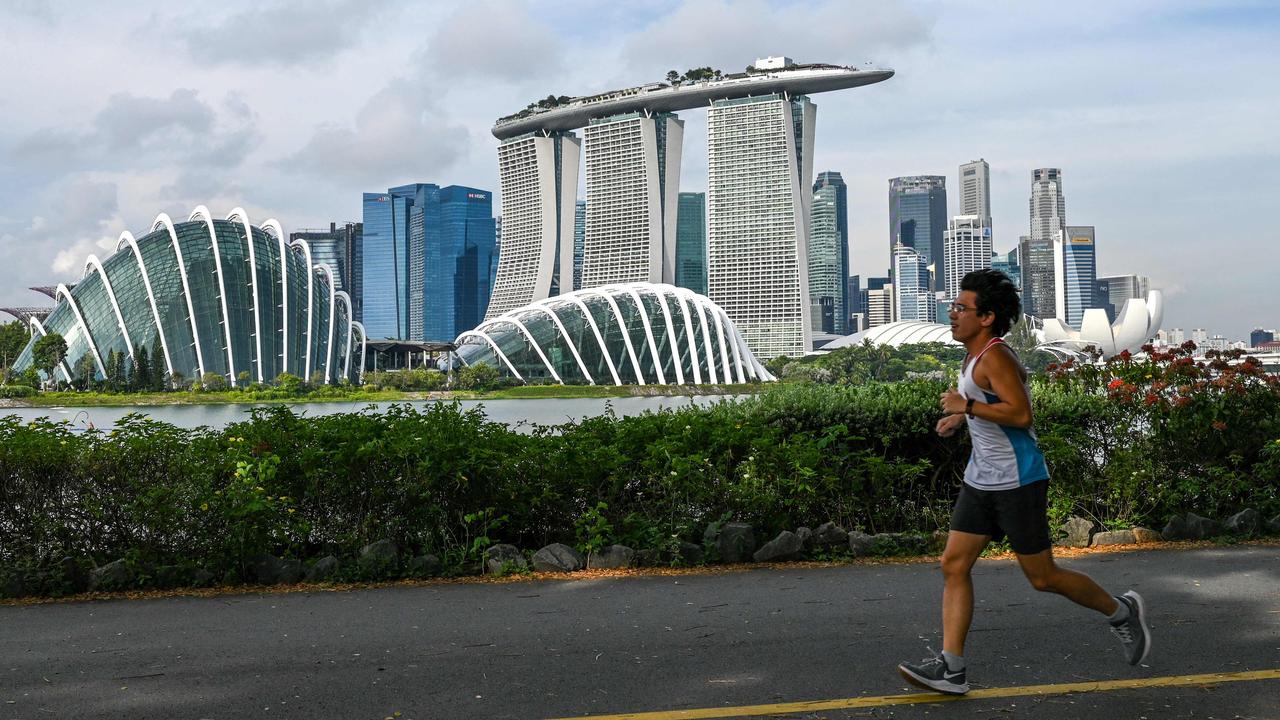
What it means for Australia
Throughout the pandemic, Australia’s experience has closely mirrored Singapore’s.
Both nations adopted an aggressive suppression approach from very early on. Both have world-leading vaccination rates. And both have adopted similar road maps for post-Covid life.
But Singapore has been a few steps ahead, meaning it has been experiencing a surge for several months, while Australia is only just beginning to emerge from lockdown due to our delayed vaccine rollout.
Given how similarly both countries have navigated Covid, Australia’s attention is firmly turned towards Singapore as a potential glimpse into our own near future, now that Australia officially entered “Phase B” after hitting the 70 per cent double vaccination milestone for over-16s this week.
Singapore’s current Covid woes are also especially concerning for Australia, given the announcement today of Qantas’ accelerated reopening of international travel, with flights between Sydney and Singapore resuming on November 23, four weeks ahead of schedule.
Last month, Professor Dale Fisher, Singapore’s leading infectious diseases expert, told the Sydney Morning Herald Australia should learn from Singapore’s problems, and “get beds ready now” in preparation for an increase in cases.
He said that included both ICU beds as well as community care facilities for older Covid patients who weren’t necessarily critically ill, and said Singapore had been too slow to open those new facilities for the elderly.
“If there is a lesson for NSW and Victoria, [it is] could this be a problem for you as numbers continue to increase as you ease restrictions?” Prof Fisher told the publication.
“Do you need these extra facilities? … If so, do them now because your numbers are going to go up.”
Silver lining
Despite Singapore’s worryingly high case numbers, it is important to put those numbers into perspective.
In the past 28 days, an overwhelming 98.7 per cent of local cases were either asymptomatic, or experienced only mild symptoms.
And just 0.1 per cent were admitted to intensive care, the government announced.




